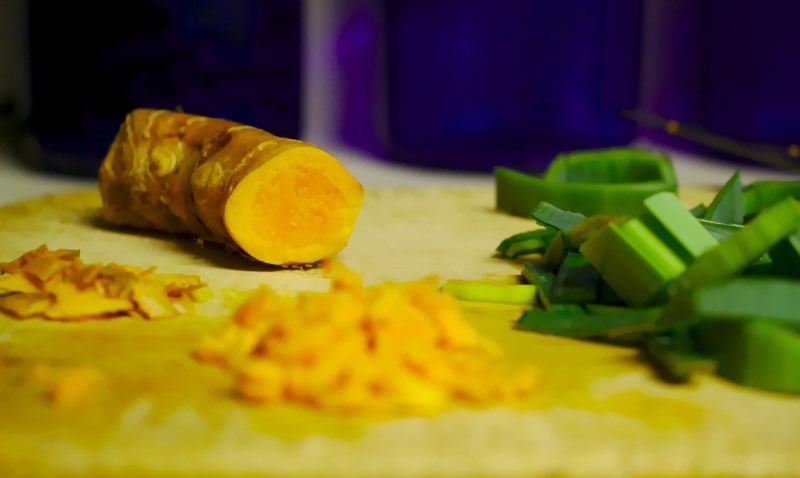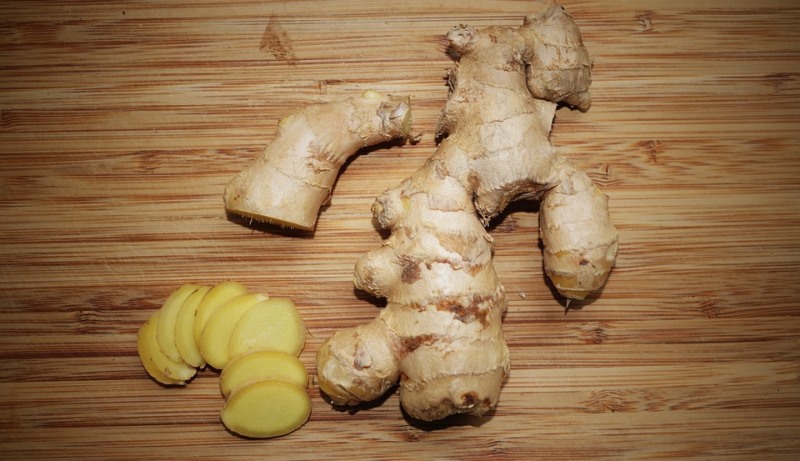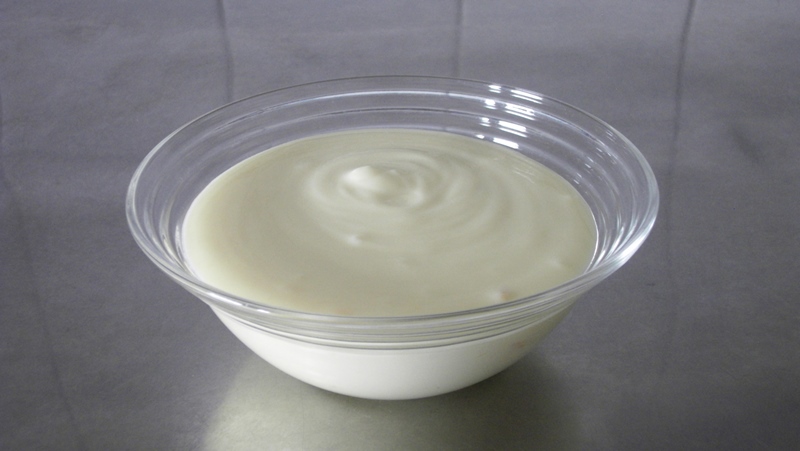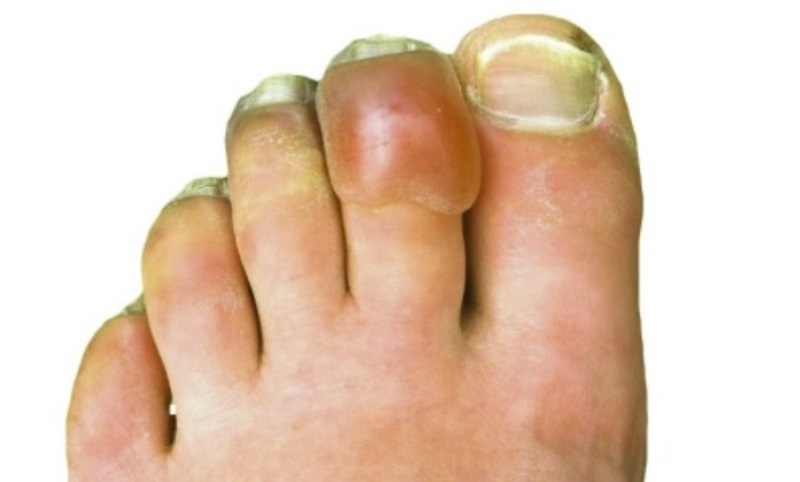For a proper diagnosis of lupus, you need to consult your doctor. Apart from the treatment suggested by him or her, you can also try these home remedies for lupus.

Image source: Google, copyright-free image under Creative Commons License
If you are diagnosed with lupus, this is what it means: Your immune system instead of protecting your body tissues, has started harming them. You have contracted an autoimmune disease, in which, the immune system cannot differentiate between the body’s own tissues and foreign invaders. According to statistics, women are more prone to lupus than men.
There are different types of lupus, the most common being lupus erythematosus or SLE. Doctors have still not found the exact cause of lupus, but according to research, it is due to both genetic and environmental factors. The condition can be worsened by triggers like, infections, stress, sunlight and certain kind of medications.
Lupus does not only affect the immune system. It can also affect the heart, the lungs, the kidneys, the skin, the brain, as well as the joints and blood vessels.
Suggested read: 11 Natural Home Remedies For Jaundice That Are Highly Effective
The common symptoms associated with this medical condition are fatigue, swelling, enlarged lymph nodes, chest pain, difficulty in breathing, headaches, fluid retention, fever, muscle pain, joint pain and rashes on the cheeks and the nose. You might also suffer from photosensitivity.
Usually these signs come and go, and also vary from one person to another. The intensity of these symptoms might also change with time. Lupus can even lead to worse medical complications such as kidney problems or even cardiovascular diseases.
The home remedies in today’s post will help you treat the symptoms associated with lupus. It will also give you relief from the pain and the inflammation, while reducing the swelling.
Home remedies for lupus
Here are the 8 best home remedies that will help lower the pain caused by lupus, giving you relief and also increasing your energy levels.
1. Turmeric

Image source: Google, copyright-free image under Creative Commons License
Turmeric contains an active compound called curcumin, which, according to researchers is a great way to prevent and heal lupus as well as other inflammatory autoimmune illnesses.
In 2012, a study published in the Journal of Renal Nutrition showed that turmeric can lower the systolic blood pressure, which is likely to be very high in patients of lupus. It also reduces proteinuria and hematuria, which prevents the illness from relapsing.
For the remedy, you can use turmeric in your daily cooking. You can also drink turmeric milk, if you want. For this, begin by boiling a cup of milk. Now add a teaspoon of turmeric powder to this milk, and boil the mix. Drink it once it is lukewarm. You can add half a teaspoon of honey to sweeten the milk.
You should repeat this remedy twice a day for best results.
You can also take turmeric supplements. However, it is suggested that you consult a doctor for the correct dosage and do not self-medicate.
If you have problems in your gallbladder, then you should not try this remedy. Also, turmeric acts as a blood thinner, so be careful.
2. Ginger

Image source: Pixabay under Creative Commons License
Next remedy is the wonder spice called Ginger. Ginger is a very effective cure for lupus that has arthritic symptoms.
Since ginger contains antioxidant as well as anti-inflammatory properties, it helps relieve both swelling and joint pain that is associated with lupus.
For the remedy, you can increase your intake of ginger by including it in your daily diet. You can also prepare some ginger juice and add it to other vegetable juices and drink.
Ginger supplements are also available. However, it is suggested that you consult a doctor for the correct dosage and do not self-medicate.
3. Probiotics

Image source: Google, copyright-free image under Creative Commons License
The next remedy, probiotics, develops and strengthens the immune system. These beneficial gut bacteria also extend the length of the lupus remission, thus reducing flare-ups and the frequency of the flare-ups.
A study published in The Journal of Immunology, in 2009, showed that probiotic lactobacilli can control lupus development as well as progression by inducing regulatory cells and producing IL-10. IL-10 is a cytokine that is also an effective anti-inflammatory agent.
You can take probiotic supplements if you want; however, it is suggested that you consult a doctor for the correct dosage and do not self-medicate.
4. Exercise

Image source: Shutterstock
Exercise plays an important role in improving health, especially for lupus patients. Regular moderate exercise helps prevent fatigue and joint stiffness.
To treat lupus, you can try some low-impact exercises, such as walking, cycling, swimming as well as stretching that focuses on a range of motions. You can also try some water aerobics. These workouts will not put pressure on your joints, but instead will also enhance your sense of well-being.
You may also try tai chi.
When you perform these exercises, you need to be very slow in your movements, or you might worsen your situation. You also need to pay attention to the signs your body is likely to give out. If those are signs of discomfort, then you need to stop immediately.
Suggested read: 12 Genius Ways To Cure Excessive Nervousness With Home Remedies!
5. Apple Cider Vinegar

Image source: Google, copyright-free image under Creative Commons License
Apple cider vinegar can help you treat lupus. This is because people suffering from lupus usually have an HCL deficiency. Diluted apple cider vinegar improves the production of hydrochloric acid in the body, and enhances the ability of the body to absorb nutrients.
It also aids detoxification, which is absolutely necessary when you are suffering from lupus.
For the remedy, you need to first dilute some unfiltered apple cider vinegar. For this, add a teaspoon of the vinegar to a glass of warm water. Now you need to squeeze half a lemon into this diluted solution and mix. The lemon juice will increase the effectiveness of this treatment.
You need to drink this solution thrice a day, 20 minutes before each meal.
6. Coconut Oil

Image source: Google, copyright-free image under Creative Commons License
Next remedy, coconut oil, contains medium-chain fatty acids that help reduce the destructive responses of the immune system,
Coconut oil is great in general because it offers a number of health benefits, from lowering the cholesterol levels to improving digestion. It is also a great remedy for candida infections.
For the remedy, you need to take 5 teaspoons of virgin coconut oil, every day. If taking it raw is tough for you, add it to your smoothies and drink. You can even incorporate the oil in your cooking.
7. Epsom Salt

Image source: Shutterstock
Epsom salt bath has numerous benefits, and one of them is to relieve fatigue, a key symptom of lupus. This bath will also reduce the pain in the joints and the inflammation.
By enhancing the absorption of magnesium by the body, Epsom salt helps detoxify it.
You should not take an Epsom salt bath if you are also suffering from diabetes or kidney issues.
For the remedy, add a cup of Epsom salt to your bathtub. Fill it with lukewarm water, and soak yourself in it for at least 15 minutes. Now pat your skin dry.
This remedy should be repeated thrice a week for best results.
8. Holy Basil

Image source: Google, copyright-free image under Creative Commons License
Tulsi or holy basil is an adaptogenic herb, which reduces stress, and thus, helps avoid lupus flare-ups. It also gives rise to a sense of well-being by regulating the functioning of different organs. It also relieves fatigue, which is a common symptom associated with lupus.
It is also an anti-oxidant, and has anti-inflammatory properties.
For the remedy, you can prepare some tulsi tea. Begin by boiling a cup of water. Now, to it, add a teaspoon of dried basil, and allow it to steep for at least 5 minutes. Now strain the tea, add some honey to it, and drink. You need to repeat this remedy thrice day for best results.
You can even chew basil leaves for remedy. Make sure you wash them properly before chewing on them.
Additional tips for lupus
Here are some tips that you can follow in addition to the remedies we just discussed.
- You should maintain a diary, and in it, make a note of how you feel and whether your symptoms are improving or get worse. This will help your doctor stay updated about your condition.
- You should make an effort to avoid all kinds of stress and stress triggers. To reduce the stress, you can try restorative yoga or guided imagery.
- Ensure that you get plenty of sleep and rest.
- For people who are photosensitive, stay away from harsh sunlight. You need to also protect your skin by using a sunscreen with good SPF factor.
- Identify your food allergies (the diary will come in handy), and then avoid those allergens.
- You need a diet that is low in both fat as well as protein. You can take vitamin B 12 in supplement form to make up for meat.
- You need to immediately quit smoking if you are a smoker. Passive smoking is also as dangerous as active smoking. So be careful.
Suggested read: 8 Most Effective Home Remedies For Hidradenitis Suppurativa
That is all we have on today’s post on home remedies for lupus. Was this helpful? Will you be recommending it to others too? If you have some remedies that you would like to share with us, then please do so in the comment section below.
You can also subscribe to our newsletter to receive these articles in your inbox every day.
See you again tomorrow!
Featured image source: Instagram













